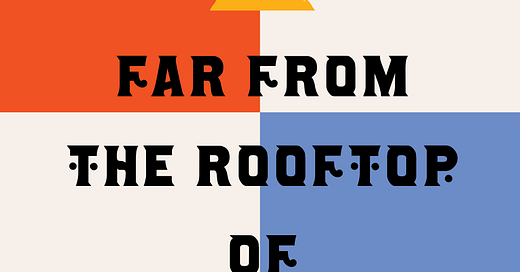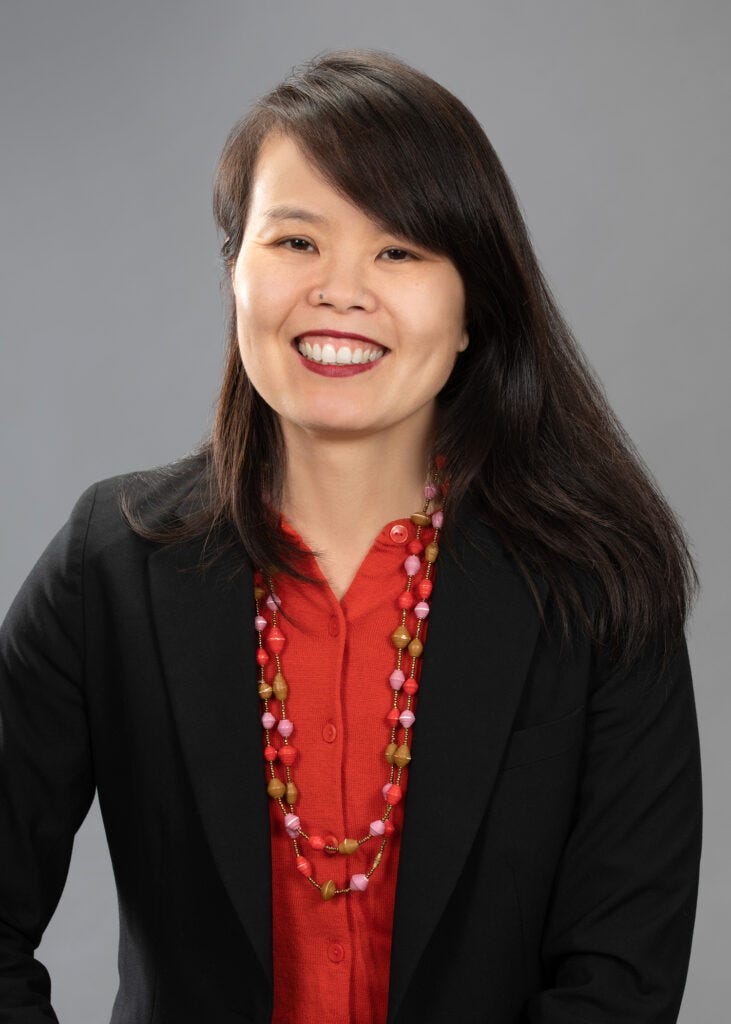Editor’s Note: The Dalai Lama celebrated his ninetieth birthday on July 6th and will observe the next twelve months as a “year of compassion.” The Massachusetts Review shares today an excerpt from contributor Amy Yee’s narrative nonfiction book, Far From the Rooftop of the World: Travels among Tibetan Refugees on Four Continents (UNC Press). This winter audience with the Dalai Lama took place in December 2008. He was speaking to a group of Tibetans who had recently arrived in India.
* * *
Finally, the Dalai Lama entered the hall, one shoulder bared beneath his red robe. With little fanfare, he took his spot behind a table and stood to address his audience. The Dalai Lama had a different air as he spoke in Tibetan. When he spoke in English to foreigners, he was often playful, laughed a lot, and seemed to enjoy hamming it up. In front of the Tibetans, he was no-nonsense, serious, and focused. In a whisper, Tenzin Taklha translated the Dalai Lama’s words into English, and I wrote everything down.
The Dalai Lama scanned the room, where all eyes were fixed on him. “Any problems? Was anyone caught? Was anyone seen by the border police?” he asked.
His head swiveled as he surveyed the room, and he read through a list of monks in the audience as though taking roll call. “Anyone going to Sarnath?” he asked, referring to an upcoming weeklong teaching he would give at the Buddhist holy city in northern India. After these routine questions, the Dalai Lama spoke calmly yet hurriedly, as though he were a father with just a short time to impart advice to his children. All was quiet except for the sound of his voice.
“Many of you have come under difficult circumstances. This is a happy occasion for you,” he said of their meeting. “I am also happy. But these days, Tibetans are immersed in a complicated problem. For me, for the last fifty years in exile I have been separated from my country. Generation after generation is facing great difficulty in their mental state. The situation in Tibet sparked the nonviolent demonstrations across Tibet. The generation from 1949 when the Chinese came, those people [Tibetans] are already gone. The next generation is slowly disappearing. In all regions in Tibet, most demonstrators are very young, but the difficulties in our mind continue to remain.
“I frequently meet with Tibetans who care for Tibet. One Tibetan said he can earn a good living there. His children get education. But he said, “I am a Tibetan. In my mind I always feel like I’m being suppressed. In my mind, I feel anguish.” Then he started crying. It is not just a problem of earning bread. Inside our mind we are not satisfied and not happy.
“Though the generations change, this problem remains. For the Chinese government, this is embarrassing and it forces them to lie. Sometimes they make unbelievable lies. But we want to solve this problem. It will be helpful to China and then they won’t have to lie. If they respect Tibetan culture, give us meaningful autonomy, really look after minorities, then China can be proud. Everything should be transparent.
“If truly China is united, they won’t have to rule with suppression. Other minorities are facing problems. In order to deal with these problems, the Chinese are using terror as a tool. When we give our presentations, they just dismiss our requests.”
The Dalai Lama let out a short burst of wry laughter. “We can’t do anything. Even if we swear to the Communist Party, it doesn’t help. They don’t trust us. They don’t believe us. Some Chinese people believe we are sincere, but they can’t do anything. The People’s Republic of China was founded more than sixty years ago. There are many changes taking place in China. Many of you have seen it with your own eyes.” The Dalai Lama surveyed the room. “One very big change: even though it is the Communist Party, Communist ideology is almost gone. A Communist Party without ideology—very strange. One Westerner familiar with international affairs said it’s not communism. It’s capitalism. Totalitarian capitalism.
“However, the power kept by the CCP [Chinese Communist Party] remains the same. The government is ruling by power. Under the government, loyalty to our country remains the same. Besides the older generation, the younger generation feels even stronger nationalism.”
The Dalai Lama spoke fluidly and did not pause as he switched to another topic.
“The most important thing is higher standard of education. Then we can fight for our rights. In villages there are no educational facilities. Monasteries are no longer there. Rural people have great difficulty. For Tibetan people it is important to have a high level of education. It is not enough to make money, gamble. I heard a report that many Tibetans are drinking inside Tibet. That’s not good. I’m not asking the monks. You’re not supposed to be drinking!”
The Dalai Lama laughed. “I went to the Spiti monastery,” he said, referring to Spiti, a remote region in northern India with strong Tibetan influences. “I asked the monks, ‘Is the chhaang better in Spiti or Shigatse?’” Was the Tibetan barley beer better in Spiti or in one of Tibet’s largest cities? “One monk answered, ‘Spiti.’” The Dalai Lama chuckled. Then he grew serious once more.
“If we have money and spend it on drinking, it is not good for your health or good for anything. It is better to spend on food or education or learning how to read and write Tibetan. The reason Tibetans face so many difficulties is because we lacked education. In religion, too. People have great faith, but they don’t understand the philosophy of our religion. Even if you ask someone, they don’t know the dharma, sangha, and Buddha. It is not enough to have faith in the religion. You have to study. If you think this is the job of a monk not a layperson, that’s wrong, backward. Buddhist religion is something very wide and deep. With pride, you can have dialogue with scientists. You can have dialogue with modern science. Many scientists are taking notice of Tibetan Buddhism. It shows Tibetan Buddhism is very deep and profound. You can be very proud of this. Many scientists say, “I don’t have a religion but if I did, it would be Buddhism.”
“Without knowledge of this religion, there’s not much we can do. At initiations, many people come. But fewer people come to teachings, even in Singapore. This shows that people are not interested in studying. People think faith is enough. This is not the case! Wisdom has to be attained through study. We need to investigate reality and look at modern study. We lack this. This is the big drawback of the Tibetan nation.
“The most important thing is to study and learn. With that we can compete in a modern world. If we have to talk with the Chinese, we have truth on our side. When we have truth on our side, we can explain and reason with them. But to reason, we need knowledge. There are two types. One is traditional Buddhist tradition. There are many texts and great scholars. Second is a modern education to know what’s happening in the world today. Please do your best to study hard. We Tibetan exiles represent the Tibetan people. We are trying our best. Carrying on the struggle are you people inside Tibet. China is changing. There is growing interest in Tibet even among many Chinese intellectuals.
“A number of you are here to study. So don’t waste your time. To the monks: study hard and follow the rules. Some of you are returning to Tibet. Talk about the situation. Look at the situation. You know what you’ve seen. You can explain what you’ve seen.”
Excerpted from Far from The Rooftop of the World: Travels among Tibetan Refugees on Four Continents, © 2023 by Amy Yee. All rights reserved. Used by permission of the University of North Carolina Press.
AMY YEE is a writer, journalist and poet. Her literary travel book Far From the Rooftop of the World won a Chicago Writers Association’s 2024 Book of the Year award, as well as two awards in Foreword Review’s Book of the Year contest. She has had four Notable Essays in the Best American Essays, including “Searching for Walter,” published in the Massachusetts Review in 2020.Yee was a fellow at MacDowell and the Logan Nonfiction Program. Her poems have been published in Salamander, Memoir, Bayou,Tiferet Journal, Santa Ana Review, and Fourth River under a pseudonym. Her poetry collection was a semi-finalist in the 2019 Lexi Rudnitsky First Book Prize and the 2019 Crab Orchard First Book Award. She is an award-winning journalist with the Chicago Sun-Times and was previously with the Financial Times and Bloomberg/CityLab. amyyeewrites.com






